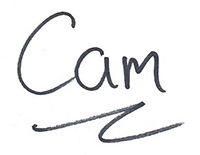
The first really effective dystopian setting I saw in movies was Ridley Scott’s 1982 Bladerunner, which both made me a fan of anything Ridley Scott made (and I am still a diehard fan), and made me aware that there was no guarantee that humanity’s actual future would be rosy, the way the Star Trek franchise liked to portray.
I’m not a huge fan of dystopias. They’re often so bleak that they end up being depressing. I like my fiction to be hopeful.
But Bladerunner—the movie, not the short story by Philip K. Dick that the movie was based upon—fascinated me because the setting seemed realistic. The grittiness was appropriate.
In particular, it seemed reasonable to me that if you did a straight extrapolation from the state of human culture in 1982 to 2019 (when the film was set), there would be advertising everywhere.
Forty years later, advertising is everywhere. Not much else about Scott’s vision of the future was accurate. There are no off-world colonies, we don’t have androids running amok, entire cities are not made of towering buildings. But the advertising is even more invasive than Scott anticipated.
These days, even my laptop pops up with advertising. I get advertising on the TV streaming service that I pay for.
I long ago unhappily adjusted to any site I visit carrying so much advertising, that the content is masked and unreadable.
And it has been suggested to me that in the very near future, novels will carry paid advertising at the front and back of the book, to offset printing costs, or, in the case of ebooks, to offset the effects of pirate sites and readers who can no longer afford to pay for books—they’re too busy paying taxes.
And, as the market adapts (that is, readers tire of protesting), the advertising will start to pop up between chapters.
Weekly, I get email from people and organizations that will pay me to post articles on my blog that promote their products. I assiduously mark them all as junk, so each new email that lands in my inbox is a new source angling to plant their faux advertising. How many are there?
When I’m not writing fiction, I am the editor of a city magazine and its site. I was the editor of the previous iteration of this magazine in 2002, and the differences between now and then are fascinating.
The first time I was editing the magazine, I would have been horrified if the marketing department had suggested I write about one of their advertisers or promote them in any way. I went out of my way to avoid that influence, maintaining the “integrity of neutrality” of the editorial department.
Now, it is common practice to check with the marketing department before adding a story to the pagination. I’ve been told to de-emphasize focus upon one or other destination or attraction, and been asked by salesmen to mention potential advertisers in site posts, to butter them up.
I’m horrified, now, that this doesn’t horrify me anymore. Twenty years of increasing exposure to advertising has made me cynical.
An idea from another SF story, for which I can’t recall the title or author, sorry, has me just waiting for advertising to be printed on my toothbrush. (Actually…I think it was mine! New Star Rising. 😊)
How long before toilet paper is one long sheet of multiple adverts? How long before food packaging carries advertising?
I’ve been reading a lot of John Michael Greer’s brain-inflaming predictions about the future, lately. Cory Doctorow, too. Doctorow’s relentless reporting upon the enshittification of capitalist societies, coupled with Greer’s rolling-tank thesis that not only is the world going to hell in a handbasket, we’re already seventeen years along that one-way, no-detours, path, tends to make anyone a pessimist.
But it’s hard to look away.
There are a lot of futurists out there. I really like reading Kevin Kelly’s peerings into the future, but he does it so rarely, that he’s shouted down by the more prolific.
Bruce Sterling is very noirish in his ideas of what the future will look like. Dr. Michio Kaku often imparts a sense of hope but only puts books out every few years and blog posts months apart.
So the message coming through these days is that society as we know it is doomed. We’re not going to get hit by an asteroid, or EMP. It won’t be a quick resolution. We’ll instead drown in the consequences of an increasingly stratified society, the overwhelming effects of capitalism gone wild and economic weaknesses exponentially inflated.
Advertising, along with junk fees and taxes, according to Greer, is just one method used to “prop up a vast hyperleveraged structure of investment and debt which gives the privileged classes of the modern industrial world their wealth and their influence.” That vast, hyperleveraged structure will implode sooner or later, Greer adds, and provides suggestions for how individuals—us—can weather the fallout.
It’s gloomy. Apparently, I’m already living in one of the dystopias I don’t like reading about.
So I sat up straight and grinned widely when I saw this amazing statement from Doctorow, of all people, in his April 22 post:
More than 50% of all web users have installed an ad-blocker, the largest boycott in the history of civilization.
That’s something that all these futurists, with their bleak outlooks, have failed to consider: The quiet acts of small individuals, that add up to silent, but wholesale adjustments of society.
So yeah, there’s hope.
Yay!

Latest releases:
Quiet Like Fire
Solar Whisper
Ptolemy Lane Tales Omnibus
It reminds me very much of Fred Pohl and C. M. Kornbluth’s works “The Space Merchants” and “Venus, Inc.”. I’ve read the former and not read the latter. But the story was this crazy mess of advertising gone horribly, Lovecraft-level wrong, and it has control over everyone’s lives on Earth. And eventually, Venus.
I mean, when the most popular soft-drink is called “Mokie-Coke”, and contains significant quantities of highly addictive substances (we’re talking crystal meth levels of addictive), and even your morning coffee, the most popular brand being “Coffiest”, loaded with even more alkaloids than regular coffee, will hook you like the corner dealer giving you the “first taste” for free, then you’ve got what Pohl foresaw in modern advertising to come and what Philip K. Dick and Neal Stephenson saw galumphing into Bethlehem, so to speak.
Death by marketing. (shudder)
I’m adding those to my TBR pile. Thanks!
Cam.